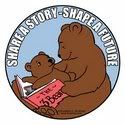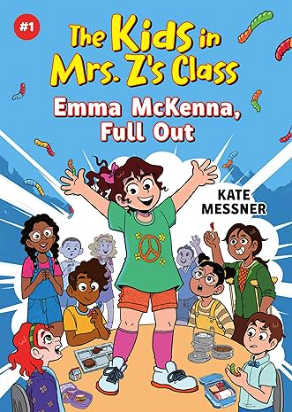A parent of one of our middle school students approached me at my daughter’s ballet class a while back.
“I was hoping I might be able to talk to you about my son,” he said, shaking his head and wringing his hands in a way that led me to believe the young man must be a drug addict or serial shoplifter. “He’s constantly reading graphic novels. What should I do?”
The idea that parents ought to “do something” when kids aren’t reading the books that fit our notion of what they “should” be reading is a common one. Because smart kids read the classics, right?
I had two answers for the parent from ballet class.
Answer #1: “Buy him more graphic novels. Or use inter-library loan to request some new ones.”
Kids who love to read deserve the right to make their own reading selections. And there’s lots of research to support the idea that reading binges (devouring one graphic novel or fantasy after another) actually support passionate, lifelong reading habits. I think it’s helpful to consider our own habits as adults who read passionately. When we find an author or a genre we love, we often stick with it for a good while until something else captures our hearts. Why should kids be any different?
Answer #2: “If you’d like to see him branching out, look for some more sophisticated graphic novels that might serve as ‘gateway books.’”
I offered up Gene Luen Yang’s American Born Chinese and Nick Abadzis’ Laika as choices that might lead into other genres and suggested some other high-interest, fast-moving titles that my 7th graders were enjoying, like The Hunger Games by Suzanne Collins and The Lightning Thief by Rick Riordan.
Sometimes, I think well-meaning parents are too quick to categorize books as literary junk food with no value, swooping in to snatch away the graphic novels and vampire romances and replace them with Dickens and Melville. And really? It doesn’t work.
As a middle school English teacher, I’m a big believer in offering kids bridges – books that might take them from what they’re reading and loving right now to something a little more complex or challenging, something that might send them off on another journey.
But there’s a big difference between offering a child a bridge and pushing him or her over a cliff. If you take a passionate 7th grade reader who’s eating up Sarah Dessen’s YA novels and demand that she read Wuthering Heights instead, you’re likely to end up with a withering reader instead of a more advanced one. That same student may come to love Emily Bronte in her own time and on her own terms, but when we force the issue, we often lose readers.
For me, gentle nudges feel like a much better approach. Instead of snatching away Twilight, let your reader finish the series, and then try offering up some titles that are similar in terms of the supernatural romance, but with a bit more depth. Books like Need and Captivate by Carrie Jones and Lips Touch, Three Times by Laini Taylor fit that bill beautifully.
YA Literature Goddess Teri Lesesne has a new book called Reading Ladders: Leading Students from Where They Are to Where We’d Like Them to Be. I haven’t read it yet, but I’m so looking forward to it, and based on what I’ve seen of Teri’s blog and conference presentations, this is a title you won’t want to miss.
 And the key word in all of this? Leading. Not shoving or force-feeding. Leading. If we respect kids as readers, they come to trust that they can count on us to offer them the right books at the right time. In my experience, that’s the best way to nurture kids to become passionate, lifelong readers.
And the key word in all of this? Leading. Not shoving or force-feeding. Leading. If we respect kids as readers, they come to trust that they can count on us to offer them the right books at the right time. In my experience, that’s the best way to nurture kids to become passionate, lifelong readers.
Those adorable Share a Story-Shape a Future bears on the logo are the work of illustrator Elizabeth Dulemba. For a full roundup of today’s Share a Story-Shape a Future posts, visit Jen Robinson’s Book Page.
A quick post-script for Chicago area teachers/librarians… I’ll be in your neck of the woods to give an author talk at the International Reading Association Conference in April, and due to a change in my schedule, I have time to offer a free school visit on the morning of April 27th if anyone is interested. If you’re in the Chicago area and might like to schedule an assembly/writing workshop for that day, just comment or drop me an email (kmessner at katemessner dot com)
And I’d love it if we could keep this "Great Expectations" conversation going in comments… For example, middle school ELA teacher Cindy Faughnan (
What are your favorite strategies for helping kids find the perfect next book to read?




